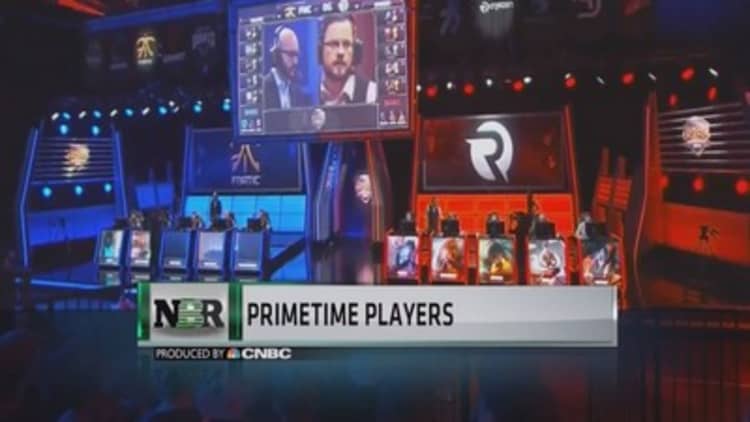
Thanks to the growing number of people who consider themselves gamers and the expansion of digital media, the total worldwide market for eSports will reach $910 million in 2016, according to research firm SuperData. To help brands capitalize on advertising opportunities in the space, one of the leading gamer lifestyle digital networks is launching a "gaming" agency.
"This is the first real digital native sport," said Chad Gutstein, CEO of multi-channel network Machinima. "This is a sport whose foundation is something going from (binary numbers) 0 to 1. It's not a ball. It's not a hoop. Its foundation is code."
Machinima, whose investors include Warner Bros. and Google, announced on Friday that its Mach-1 agency will use internal analytics to help brand navigate the gaming world. The deals will not be tied to just Machinima's properties, but will spread across all eSports events. In addition to insights, Mach-1 will also help with strategic planning and ad campaign execution. Though it isn't disclosing its client roster, Gustein said a little under 10 companies are currently using Mach-1's services.
The company partnered with CW in February to bring eSports to prime-time TV. What's more, other television networks have also increased their eSports coverage, including Turner through a partnership with WME/IMG, as well as ESPN.
Joshua Spiegelman, managing director of Mindshare Spotlight, said that eSports is an appealing ad opportunity for brands because its audience is mostly Gen Zers and millennials, with a significant percentage of millennial parents. Gamers also tend to be cord cutters and light TV viewers, which makes it hard to reach them through traditional TV commercials. (Mindshare Spotlight is the sports and entertainment arm of media agency Mindshare North America, which is part of WPP's Group M.)
The average gamer is 36 years old, according to the Entertainment Software Association's 2015 report on the computer and video game industry. Fifty-six percent skew male, but women 18 and older make up a larger portion of gamers than boys under 18. SuperData reported the average eSports fan's household income is $76,000. (The average HHI figure drops to $58,000 among all those who play downloadable digital games.)
"The bottom line is that the core eSports consumer is not the dude playing in his mom's basement," Spiegelman said. "A significant percentage of fans are working professionals with buying power."
Spiegelman added eSports is a full calendar year of programming because of the number of tournaments and leagues for each game, giving more advertising opportunities than other sports.
Though naturally fitting technology and consumer electronics brands have been early advertisers, Spiegelman said auto and consumer packaged-goods brands are starting to seek branded opportunities. Sponsorship and talent deals are also cheaper than they are for traditional sports, Spiegelman said.
"While regular sports is very saturated with brand activity, eSports is still very much evolving," Spiegelman said. "Consequently, there is a huge opportunity for brands to carve out an ownable space and develop a first-mover advantage among their competitive set to win the hearts of fans."
However, he admits that some brands are still hesitant to advertise on gaming opportunities because they simply don't understand the sport.
"Many brands are apprehensive with eSports because they have trouble understanding it," said Spiegelman. "Marketers can grasp most passion points, whether it be basketball, football, music or fashion, but a common response I've received from many is, 'Wait, what … millions of people are sitting around watching other people play video games?' But what's interesting is that it is the same exact consumer behavior that people demonstrated in the '80s when they stood around at an arcade watching the best Street Fighter or Donkey Kong players. Digital technology has just amplified the same behavior on a national and global scale."





